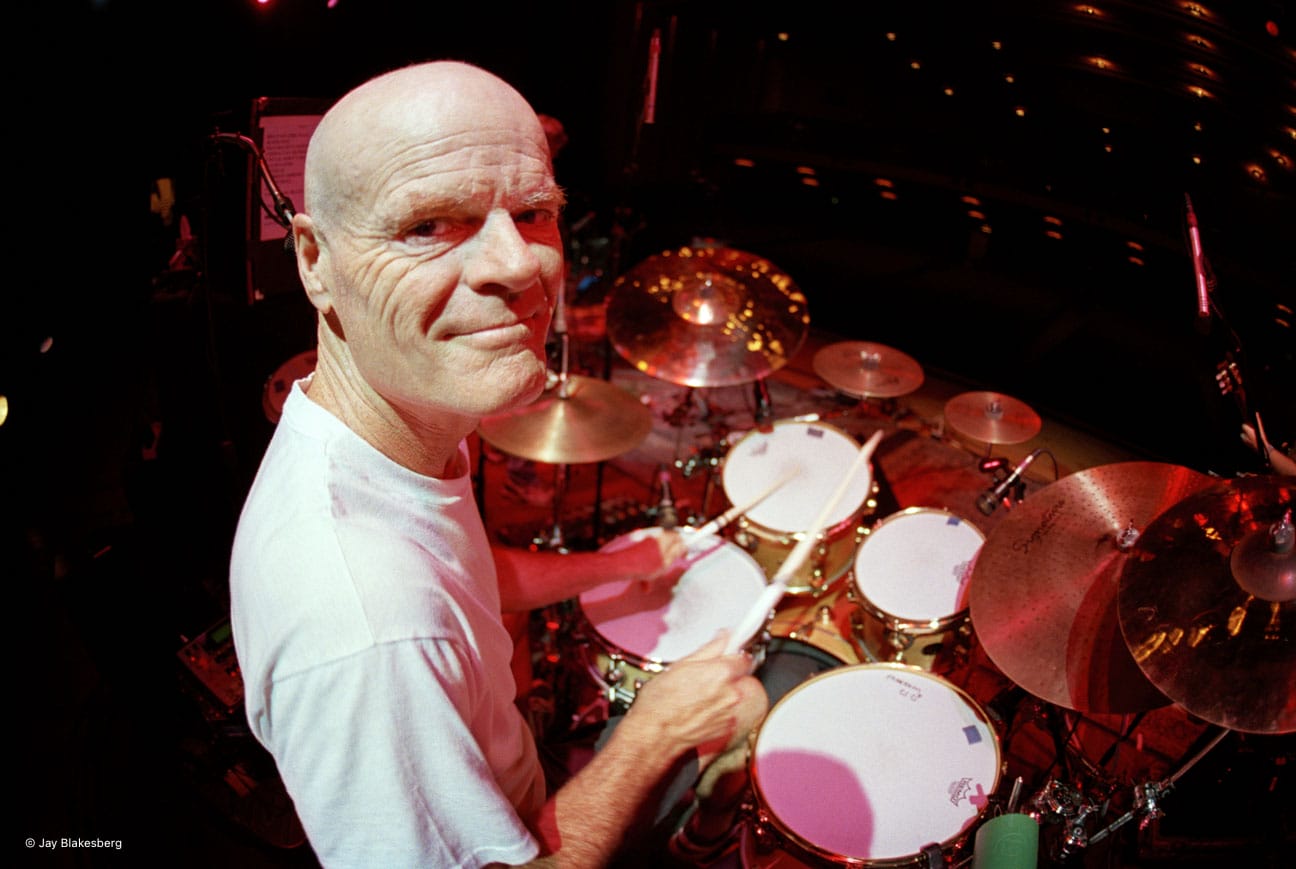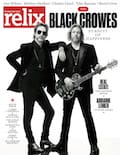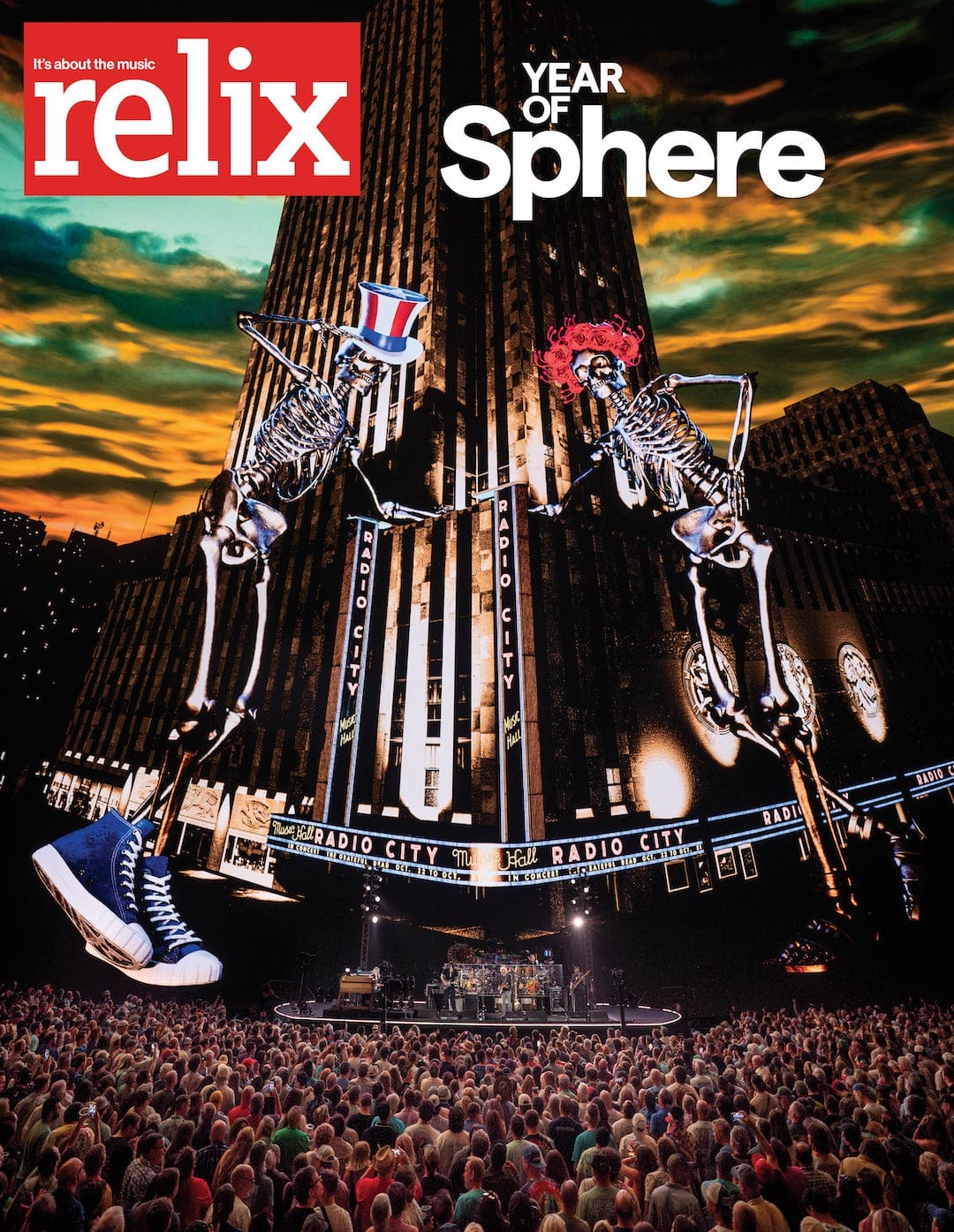John Molo: The Beat Goes On

photo: Jay Blakesberg
***
“I first saw the Grateful Dead in 1973 at American University. A friend of mine told me they were playing a free show, so we decided to go. They were a five-piece band at that time with Billy as the only drummer. I only knew a few of their songs but I liked what I heard, and I loved their audience,” John Molo says of the first time he witnessed Phil Lesh in action. Twenty-five years later, the drummer would begin performing regularly for that audience, joining the bassist as a member of The Other Ones and Phil Lesh & Friends. He continued to play with Phil through 2024 in a variety of lineups, including the beloved Phil Lesh Quintet—also known as The Q—alongside Rob Barraco, Warren Haynes and Jimmy Herring.
Molo was introduced to the Dead world by Bruce Hornsby, his bandmate of two decades, starting in 1978. The drummer believes that Hornsby—who also appeared in that initial incarnation of The Other Ones—made the suggestion to bring him into the fold. He recalls, “When Bruce said to me: ‘Yeah, they’ve probably got 50 great songs,’ that was enough for me. If Bruce felt that way, I knew there was some credence in what he had to say. So I embraced that, and by embracing it, some really great gigs came along. I feel so fortunate for that.”
The drummer has also appeared with a number of other artists, touring with John Fogerty, Chris Robinson’s Green Leaf Rustlers and the David Nelson Band. Since 2007, he’s been a member of Moonalice and he’s particularly enthusiastic about the group’s current lineup, featuring recent additions Lester and Dylan Chambers as well as The T Sisters. “We’ve got some incredible energy,” he raves. “Plus, I get to work with Roger [McNamee], Barry [Sless], Pete [Sears], Jason [Crosby] and Mookie [Siegel]. So it’s a friend fest, for sure.”
He’s also working on a new project in his home base of Southern California. Molo explains, “I was introduced to this guitarist named Jason Pinay. We’re going to have a core lineup like we did in Phil & Friends, then have special guests coming in and out. Instead of being a tribute band, it’s more of a tribute to a genre, like we did with Green Leaf Rustlers. It’ll be something that’s Americana based. Retirement’s really not going to be a thing for me. I’ll play as long as there are gigs. The beat goes on.”
In May 1987, Bruce Hornsby & The Range opened two Grateful Dead shows at Laguna Seca Raceway. What are your memories of those initial performances in front of a Grateful Dead audience?
The first day was fine and people seemed to appreciate what we were doing. Then the next day, we opened with the same two songs and this guy in the front row yelled out: “You’re not going to play the same set, are you?” That’s when Bruce had his epiphany. It took him a moment to remember, “Oh, this is the Grateful Dead. These same people were here yesterday. We’ve got to change things up.” [Laughs.] That’s when he went into some older song and then “I Know You Rider,” which people really liked.
When you began playing with Phil, what sort of approach did you did take?
I remember an early conversation with Phil when I said to him: “I can’t really sound like Billy or Mickey.” Phil was like, “Well, John, that’s why we hired you, to do your thing. Just be yourself.” I always remembered that and appreciated it.
I just wanted Phil to sound really good and feel comfortable playing. Early on, he would make some suggestions. I remember one night he asked me to join him for the San Francisco Symphony, and we heard an evening of Ives and Mahler. What I got out of it was every part that’s played on the stage is important. Don’t be subservient just because you’re not the featured soloist. Play with the same enthusiasm you would play if you were the featured player and you will be the featured player.
People would ask me if I was trying to play like Billy and I would tell them: “No, not really. He’s very hard to impersonate. He’s like Ringo or Charlie Watts. I’m doing more of an LA session thing, like James Gadson, Jeff Porcaro or John Robinson, trying to make it feel as good as it can be.”
Did anything change over time as you became more familiar with Phil and the music?
Phil and I developed an unspoken language, so my sensibility might have become a little bit different, but the approach never really changed. On “Shakedown Street,” I’m playing that like it’s a Bee Gees disco song, and then when we get to the improvisational or solo part, I’m playing it almost as if I was in the audience, asking, “Am I bringing the people in collectively?” I’m not trying to please people, I’m just trying to play with confidence and humility.
When I interviewed Phil many years ago, he described a suite of instrumental interludes he’d written related to the seven planets that had been identified by ancient civilizations. When he conveyed those ideas to you, did he detail the entire narrative or introduce it in a more nuanced, subtle way?
It was nuanced and subtle, although some of that stuff we just didn’t play very well. I don’t think we made it sound great, so some of it got pushed to the side. One time in Charlotte, maybe in 2001 or 2002, we played “Blues for Allah,” and we did a Miles Davis Kind of Blue-era version. We got very psychedelic, and it was a different kind of show. When we finished playing, the audience stayed there for about 10 minutes applauding our performance. So sometimes the ambition would be there and our execution maybe wasn’t, but it would move and morph into something else.
Phil was really into classical music, but he was also very much into Coltrane. That meant it wouldn’t always work, but the crowd was there with us, hoping that it was going to be really good.
I say this to people occasionally if they come into this world: “You should know the songs better than the audience. That’s going to take a lot of work because a lot of them know these songs like they’re short stories.”
As you think back on the totality of your time with Phil, what comes to mind?
If it wasn’t for the music, I wouldn’t have gotten to know this very special, gifted person. We didn’t really hang out a lot, but we had an intimate musical relationship. When we’d hang out, if we weren’t playing music, it was hard to get close to the communication and musical intimacy that we had. When I think of him, it’s so deep in my heart and soul.
I don’t look at the gigs I’m not going to be able to do with him. I look at all the gigs I was able to do with him. I look at all the players I got to meet and the music that we played. So, God bless Phil. That’s all I can say.




















